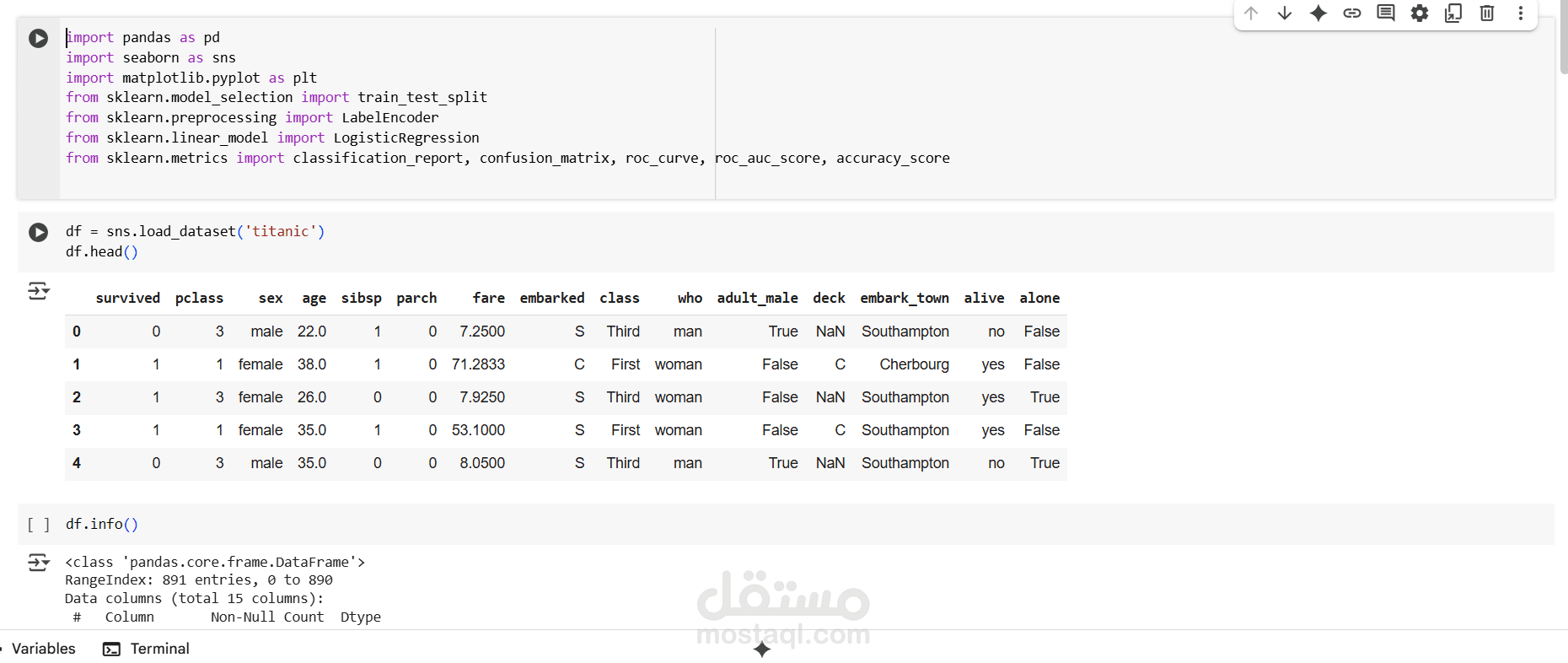classification problem
تفاصيل العمل
Project Overview:
Developed a logistic regression model to classify data into binary categories, demonstrating how statistical methods can be applied to real-world decision-making problems such as customer churn prediction, loan approval, or disease diagnosis.
Key Steps:
Data Preprocessing – Cleaned missing values, encoded categorical variables, and standardized features for better model performance.
Exploratory Data Analysis (EDA) – Visualized class distributions and identified correlations between predictors and target variable.
Modeling – Implemented Logistic Regression to estimate class probabilities and decision boundaries.
Evaluation – Assessed the model using accuracy, precision, recall, F1-score, and ROC-AUC.
Results – Logistic Regression provided interpretable coefficients, showing which features strongly influenced the classification outcome.
Tech Stack:
Python, Scikit-learn, Pandas, NumPy, Matplotlib, Seaborn
Impact:
This project highlights how logistic regression can deliver both accurate predictions and interpretable insights, making it highly valuable for business and research applications where transparency matters.
